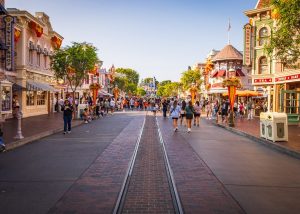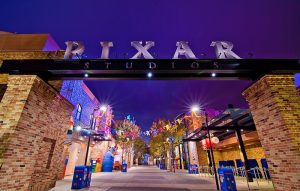Cast Member Unions vs. Disneyland
Contract negotiations between Disneyland management and unions representing ~14,000 Cast Members have reached a boiling point, as the unions have voted overwhelming to authorize a strike. This shares the latest news on the standoff and
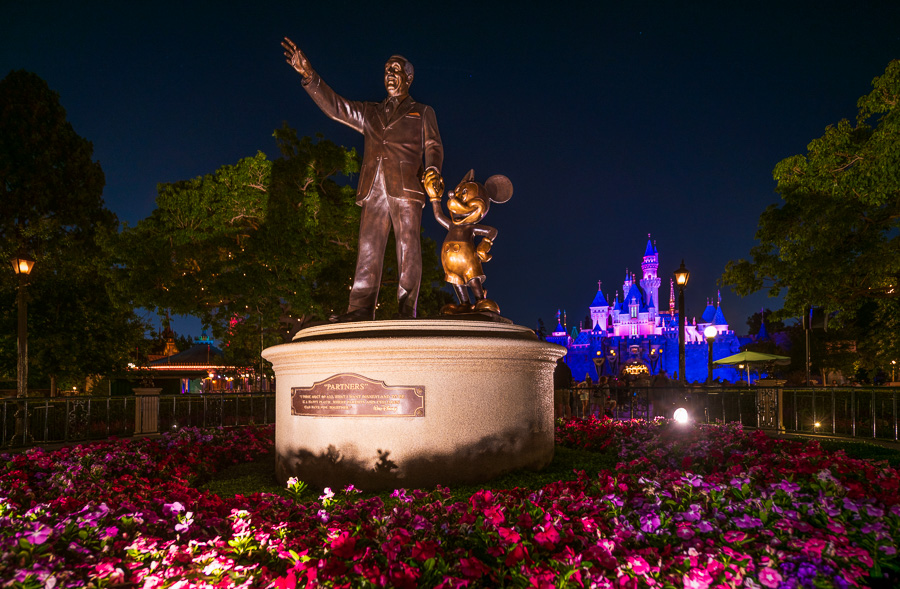

Contract negotiations between Disneyland management and unions representing ~14,000 Cast Members have reached a boiling point, as the unions have voted overwhelming to authorize a strike. This shares the latest news on the standoff and our commentary about why Disney should offer higher wages and better treatment of its employees–and why you should (selfishly, even!) want that as a guest.
Let’s start with the latest news. On July 19, 2024, four unions representing more than 14,000 workers at Disneyland Resort voted to authorize a strike by an overwhelming majority, citing alleged unfair labor practices during contract negotiations. This covers roughly half of the unionized workers at Disneyland, Disney California Adventure, Downtown Disney, and the Disney-owned hotels.
The authorization doesn’t mean a strike will happen immediately; the parties could still reach a deal that averts a walkout. If a strike does occur, it would be the first at Disneyland in 40 years. It would also be staggered, as the contract for Cast Members at Disneyland (park) expired June 16. The contract for Cast Members at Disney California Adventure and Downtown Disney expires September 30, 2024. Meaning that a strike could hit Disneyland before DCA or Downtown Disney.
A post on Instagram by Disney Workers Rising reiterates that this vote does not mean the Cast Members are on strike. This vote simply allows the unions to “take action if Disney continues to silence cast members and prevent us from getting the contract we deserve.”
Disney Workers Rising also indicates that “a strike is always a last resort, and we have committed to return to the bargaining table Monday and Tuesday prepared to bargain in good faith.”
The last time Disneyland was hit by a strike was September 1984, when nearly 2,000 Cast Members walked off the job for 22 days.
In the event of a strike, Disney maintains that the parks and hotels would remain open and ready to welcome guests. This would likely be accomplished by reallocating Cast Members from DCA to Disneyland, and also bringing out backstage support and even having managers work frontline roles.
There would also, undoubtedly, be staffing shortages. Reduced hours and other scaled-back operations could ensue depending upon the duration of the strike. Think back to the phased reopening in mid-2021–something like that.
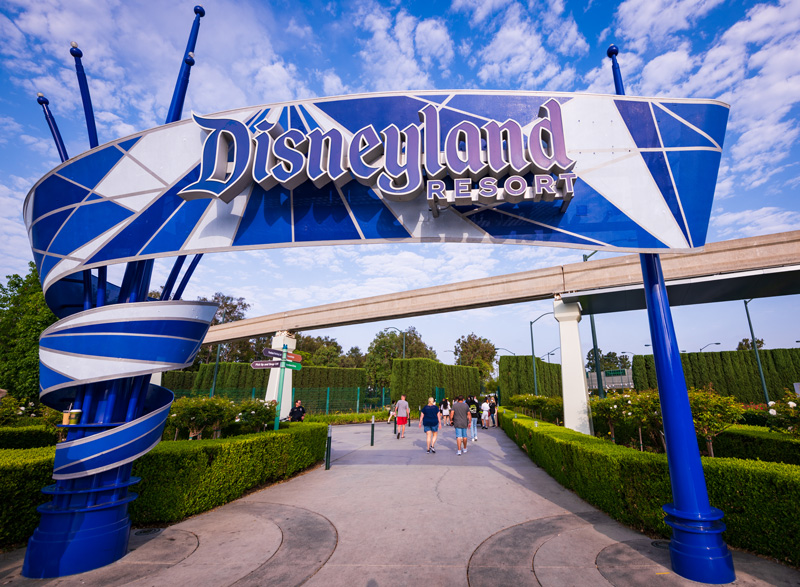
The unions entered into contract negotiations with Disneyland Resort back on April 24. Disney has proposed a 5-year contract with increases in wages and benefits. The unions wants a 3-year deal, and larger wage increases than those being offered by the company. The union is also seeking changes to the attendance policy, seniority bonuses for long-tenured Cast Members, and more. Our assumption is that hourly pay is the biggest sticking point.
On June 10, Disney workers announced that they had filed unfair labor practice charges against the company. The charges, concerning more than 675 workers, are now being investigated by the National Labor Relations Board, an independent federal agency that enforces labor law.
On July 17, Disneyland’s 69th Anniversary, approximately 300 Cast Members gathered near the entrance of Disneyland Resort on Harbor Boulevard and held a rally advocating for a fair contract. Only two days later, the strike authorization vote was made, and passed overwhelmingly.
At this point, we think the strike authorization is best viewed as a negotiating tactic rather than a likely outcome. By the union’s own admission, the threat of a strike is a more effective bargaining chip than an actual strike. However, if you’re planning a trip for August or September 2024, we’d recommend following this story closely. If you haven’t booked a hotel or anything else yet, we’d highly recommend locking in something with refundable rates.
We’ll keep you posted with developments about the Disneyland vs. Cast Member unions dispute, and will update this article accordingly with additional news. For now, here’s our perspective on the standoff…
Our Commentary
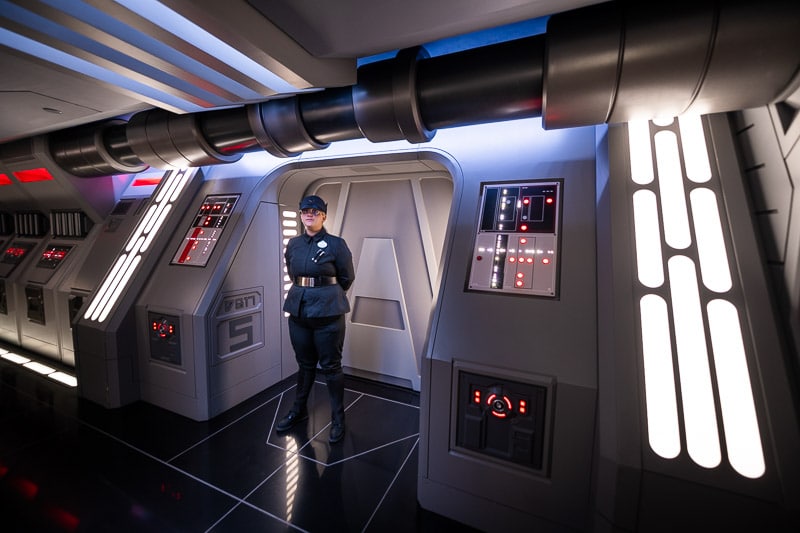
The relationship between Disney and Cast Members has been a topic of discussion for a while, and also one that has recently popped up in the comments section here a few times. Suffice to say, I have a lot of thoughts about the union negotiations with Disneyland. Honestly, most of these are nothing new–we dealt with exactly this same topic last year at Walt Disney World.
I’ll start with my personal core thesis on this subject, which is that Cast Member compensation should be competitive and, if anything, above market. Disneyland should be trying to fill roles with top talent in Southern California. Increasing wages means Disney can attract and retain friendly and helpful Cast Members who will in turn improve the quality of the guest experience–in other words, making your vacation magical.
Over the last few years, we’ve heard an increasing number of reader complaints about Cast Members not being as friendly or helpful as they used to be. Three components of this are Disney demonstrating it didn’t really care about Cast Members during the closure and in the early stages of the phased reopening, pandemic-era rule enforcement taking a tremendous toll, and a rise in entitlement among guests that the company created and fostered. Few things are more destructive to morale than the mantra: “the customer is always right.” It’s demonstrably false and empowers the worst types of people to exploit things. It’s a complete garbage saying.
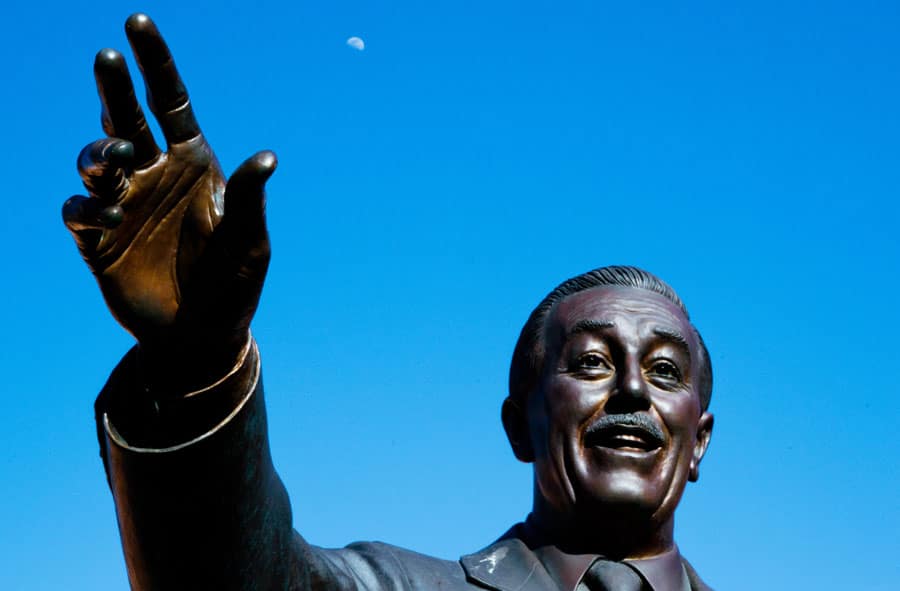
There’s also a fourth big variable underlying all of this, and that’s competitiveness. Disneyland is less competitive of an employer if it treats Cast Members poorly. As is probably obvious, it’s not simply about treatment.
The on-the-ground reality is that the Southern California labor market has gotten tighter and Disneyland has not made much of an effort to compete in it. Yeah, there are Cast Members who are passionate about their jobs and proud to carry on Walt’s legacy. Some Cast Members are willing to accept lower wages than other employers in order to work for Disney.
But for most, money talks. Employment is entirely transactional, and while companies can skew BS about being a family, legacy, and so forth, nothing shows you’re valued in that “relationship” like commensurate compensation. The converse is also true: nothing says that you’re not valued like being paid below market wages.
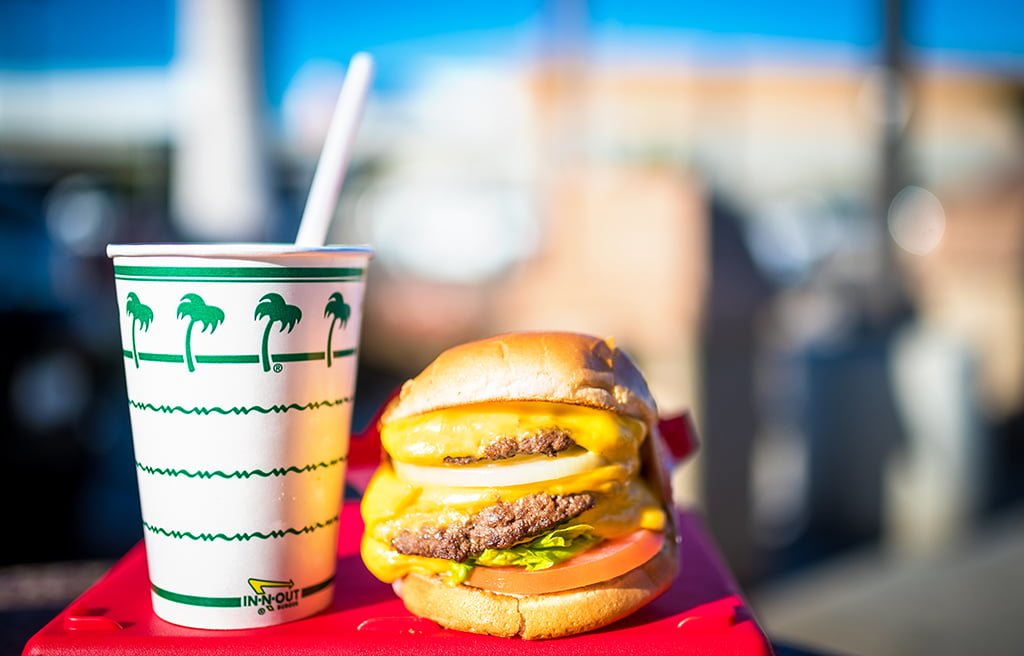
We’ve been saying for a while that we do not view Disneyland as the gold standard for customer service. This is not a dig at Cast Members–they’re only as good as they’re empowered to be, and the demands of guests and management take a toll even on the best Cast Members.
In our view, the fast food chain In-N-Out Burger is the true gold standard. For the sake of research (yeah, that’s it), we recently made a visit to the local outpost of this venerable establishment, which had a sign in the window advertising $23 per hour starting pay. Again, that’s the minimum–and it’s not a bait and switch kind of deal. (For those unfamiliar with In-N-Out, the chain famously pays above market wages, including six-figure salaries to managers.)
And you know what? It shows! In-Out-Burger offers friendly service, is one of the consistently cleanest restaurants, and is efficiently operated. It’s also safe, I guess, so you might say that In-N-Out Burger has its own version of the Four Keys! Equally notable, In-N-Out Burger is reasonably priced by contemporary fast food standards. Even if you don’t think In-N-Out Burger lives up to the hype (our condolences that you have poor taste), they’re enviable as a business.
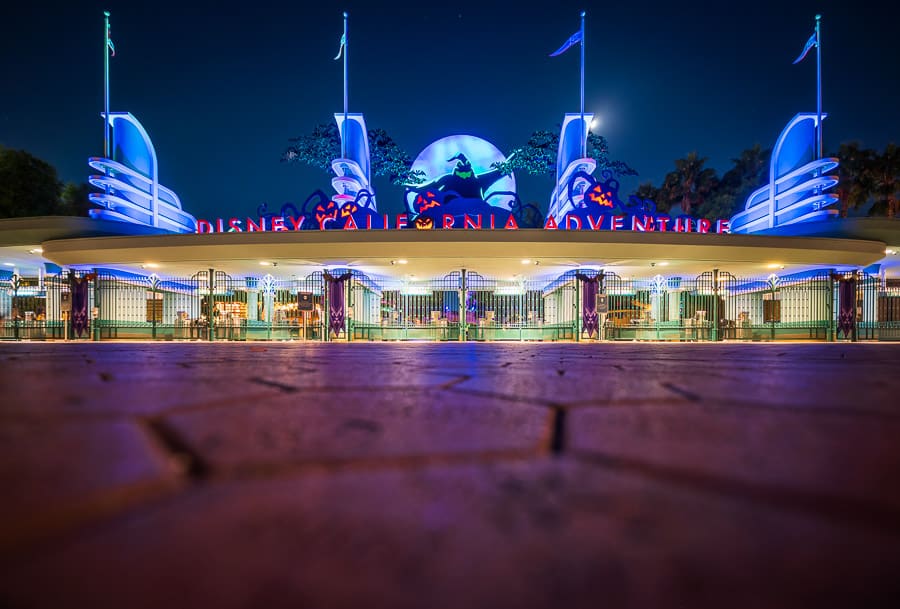
The counterpoint to paying higher wages that we always hear is in relation to guest pricing. Some Disney fans oppose wage increases under the assumption that higher wages equal higher prices for Annual Passes, park tickets, food & beverage, merchandise, hotels, and everything else. After all, if Disney’s costs increase, they’re going to pass that along to consumers, right?
I don’t know about that. While it’s certainly possible that Disney would try to pass on some of those costs to consumers (most likely on the food & beverage side), it’s erroneous to assume that Disney prices are predicated upon its costs. Disneyland is not a grocery store or a fast food restaurant–its business model is totally different, especially since it offers a largely unique product without direct competition.
Disneyland charges what the market will bear, increasing prices not at the rate of inflation or because its input costs are increasing at a commensurate level, but because they can.
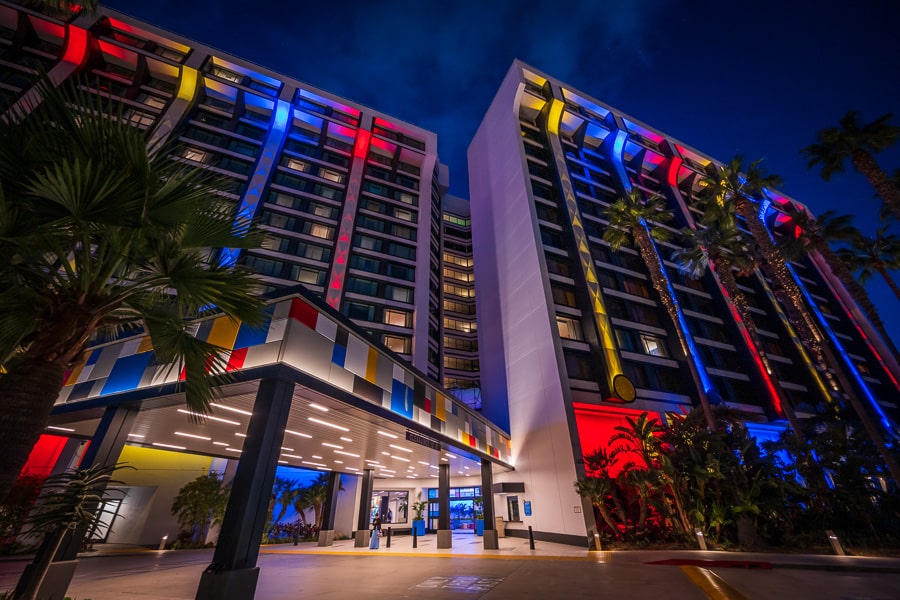
Disneyland is an extremely savvy and sophisticated business–they maximize profits to the greatest degree economically feasible. Disney is not “holding back” and prices will really skyrocket if Cast Member wages go up. If Disney could further skyrocket prices, that would happen irrespective of Cast Member wages.
The last few years of pent-up demand should’ve made that abundantly clear. Disneyland raised prices dramatically during the post-reopening period even while cutting its own costs by reducing entertainment and making other cuts. That had nothing to do with input costs. (Or is someone going to claim that Disney went from free FastPass to paid Lightning Lanes because the exact same thing somehow costs the company more to operate?)
Conversely, the last six months or so have demonstrated the opposite of that–and what happens when the market will no longer bear those higher prices. Disneyland has started offering a ton of discounts: aggressive offers on kids tickets, expanding the normal California resident deal to the general public this summer, and an unprecedented discount for Anaheim residents. None of that happened out of corporate generosity–it was because attendance is starting to slump.
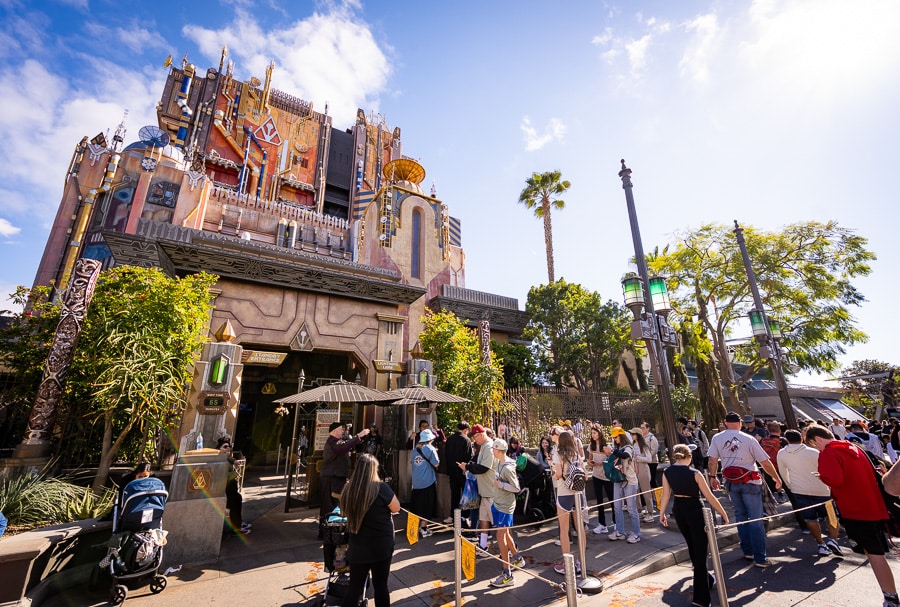
Disneyland has been able to increase margins thanks to demand and consumer tolerance for higher prices; those same margins can go the other direction, too. There’s nothing to say that every quarter has to improve upon the prior year. Perhaps the studios, streaming, ESPN, etc. could finally start pulling their own weight instead of Parks & Resorts being a cash cow that’s milked dry.
A bit tangential to this post, but the Parks & Resorts division is fast approaching a ‘something’s gotta give’ inflection point. The company and Wall Street investors have gotten used to those fat margins from the “revenge travel” era and are trying to cling to that, even as the once sky-high demand returns to earth.
The thing is, those record Parks & Resorts profits from late 2021 through 2023 were not normal. It was an aberration driven by a black swan event–leading to unhealthy business practices and unrealistic investor expectations. That was wholly unsustainable. Disney needs to recalibrate back to 2019, otherwise the pricing, cost-cutting and guest unfriendly practices are only going to result in even weaker demand. It’ll be a vicious spiral. (It isn’t just Disney doing this–Universal and SeaWorld are guilty of the same, with the last on that list arguably being the biggest offender.)
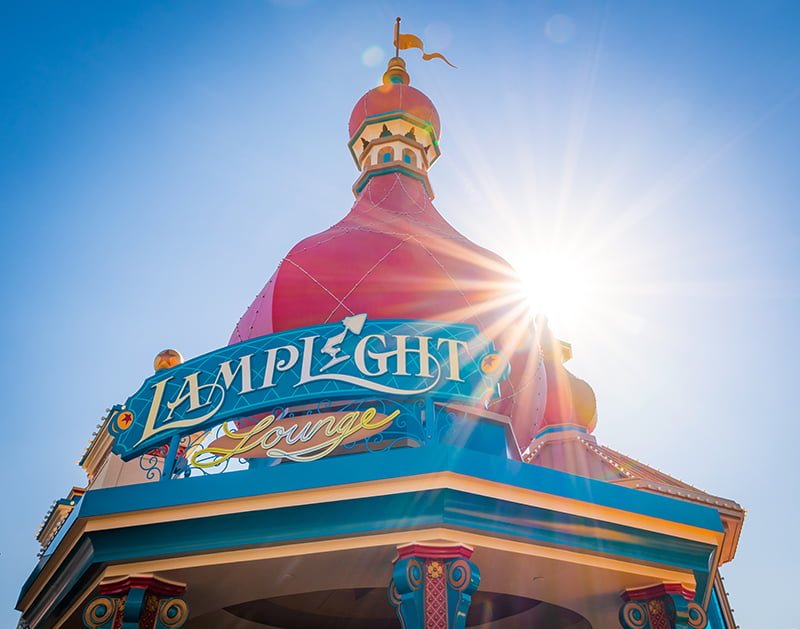
Another reason that Disneyland should offer higher wages is for the sake of staffing. If you’ve read even a few posts here over the last few years, you’ve likely heard us blame the absence of X or Y on staffing shortages. This does not just negatively impact the guest experience, but also, Disney’s bottom line.
While improving tremendously, staffing shortages remain an issue to some degree at Disneyland. The company has had difficulty filling certain key roles, and turnover is high. As a result of this, Disney has left money on the table–because it has literally been unable to fill tables at restaurants, offer a full slate of upcharge offerings, etc.
The most visible example of this is the outside seating area at Lamplight Lounge. Every time I walk by this and it’s closed, I wonder how that makes any business sense whatsoever. There’s no shortage of demand for dining at Disneyland, and this is a bar. A spot known for overpriced alcohol that was so popular in the past that it actually expanded. Maybe I’m missing something, but I cannot fathom it costing more to operate this than it would make.
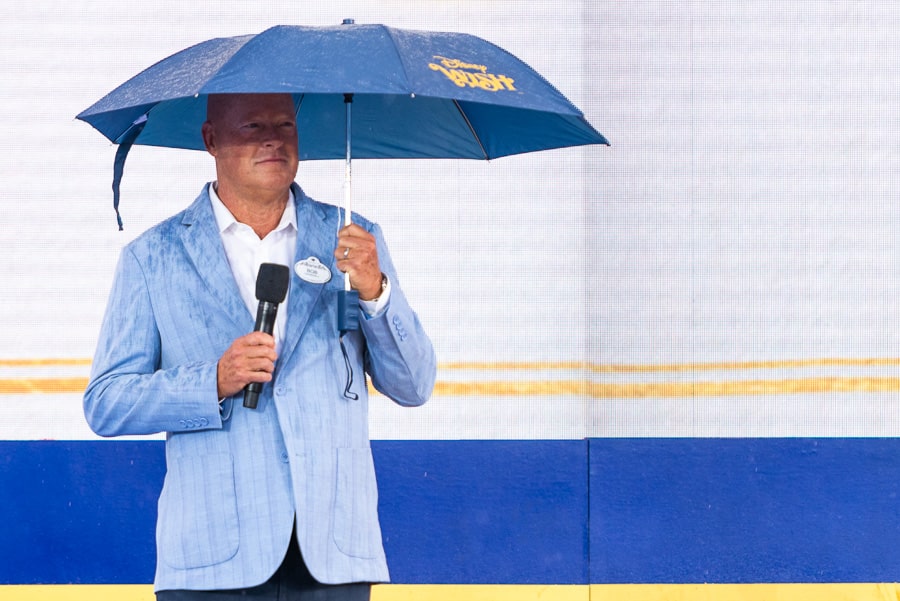
There’s also the fact that the Walt Disney Company has made the importance of Cast Members central to its image. High-level leaders within the company make gratitude for Cast Members part of their persona. When it comes to the importance of their employees, they really talk a good game.
Naturally, this is true of Bob Iger and Josh D’Amaro, who are smooth operators and savvy public speakers. But it was the case even with Bob Chapek! The man who notoriously and infamously didn’t “get” Disney even understand how important it was to publicly praise Cast Members.
During one of his last public interviews, Chapek offered this: “the lesson, and what we always should’ve known, is that Disney is all about the Cast.” He noted that people might remember the castle and churros, but the reason people have magical memories that last a lifetime is the guest-cast interactions. He called Cast Members the “secret sauce” and the key to a great guest experience.
Chapek also said that “around 99%” of the positive guest feedback he received when running Parks & Resorts was about Cast Members. He was “reminded” about the sentiment of Cast Members and the importance of them feeling valued and as if they could relate to the company. “You have to make sure the Cast is at the center of everything you do,” Chapek concluded. We never say this, but Bob Chapek was right!
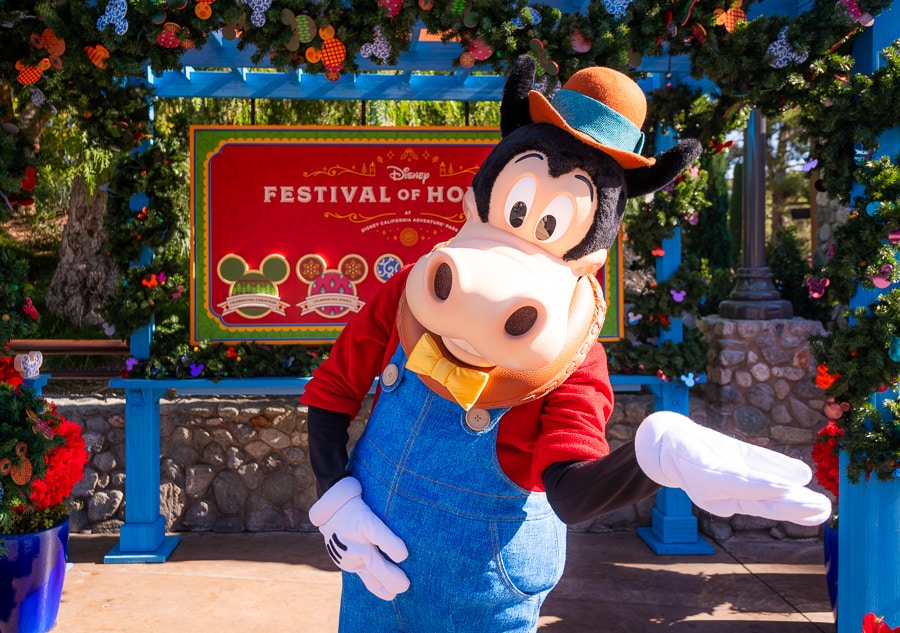
It’s not just quotes from executives. Disney dedicates much of its online presence to promoting its public image as an employer. Positive treatment of and opportunities for Cast Members are highlighted, as is how important they are to the parks and guest experience. Among many other things, the Ambassadors have their own dedicated social media accounts and there’s a whole Cast Life subtopic on the Disney Parks Blog.
Disney is a savvy company and purposefully covers Cast Members in this manner–it’s good for recruitment and also for cultivating the all-too-common guest misperception that being a Cast Member is a dream job. Heck, they even managed to turn a decision made due to realities about the labor market into a statement about inclusivity. Much of the content produced now revolves around employees–and that also includes television ads in the Orlando and Anaheim/Los Angeles local markets.
The problem isn’t necessarily this sentiment–it’s very much correct. Highlighting Cast Members and their importance to the guest experience is absolutely the right thing to do. The problem is that all of this rings hollow when paired with how Disney actually treats Cast Members, as underscored by this standoff. Words are meaningless if you don’t walk the talk. Cast Members breathe life into the parks, and they have long been the defining element of the guest experience.
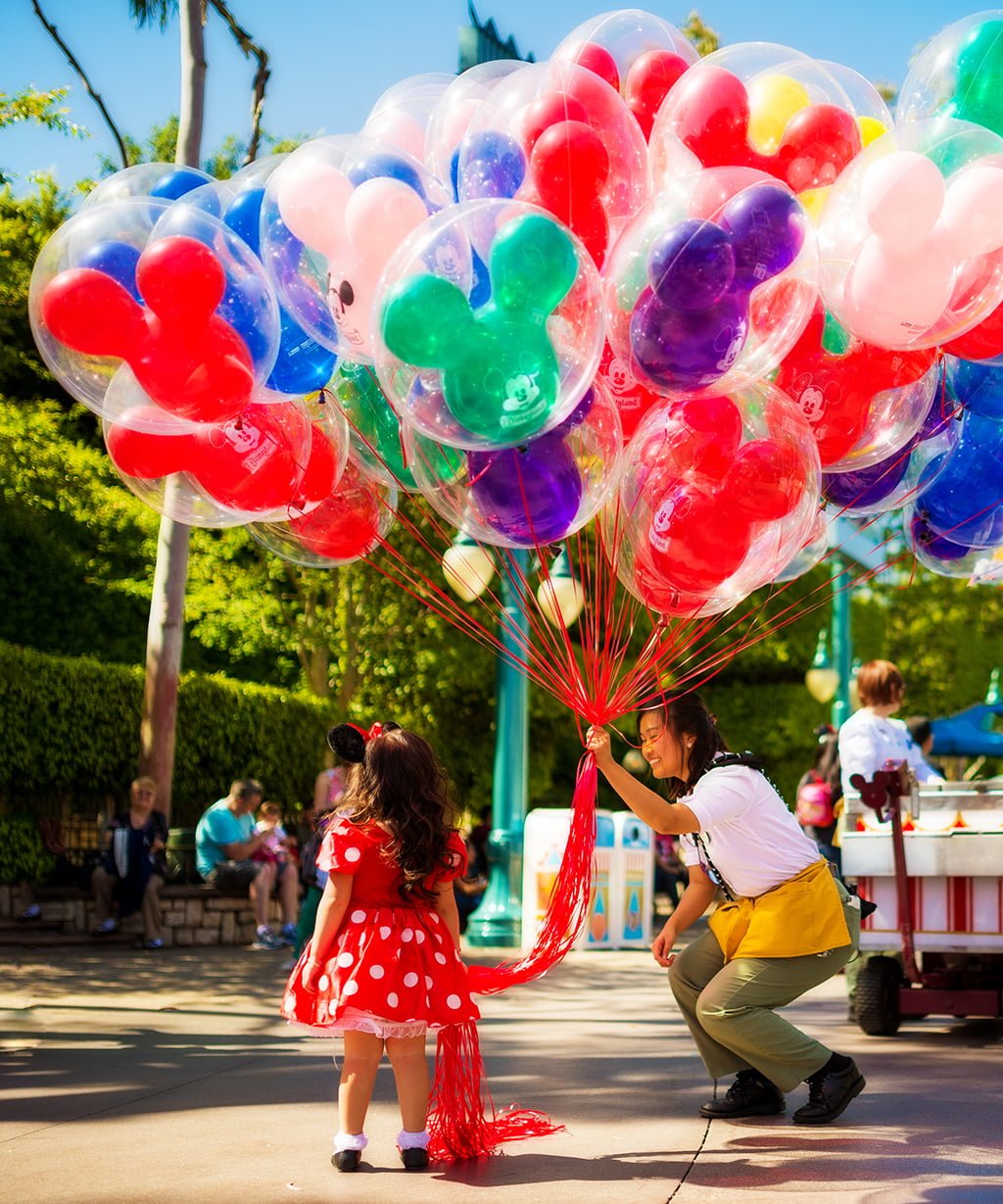
We have been fortunate to have wonderful Cast Member interactions and encounters over the years, and I absolutely want more passionate Cast Members who are proud of the work they do, the company they do it for, and strive to make magical moments for guests. We all win if Cast Members are treated well and feel valued.
My sincere hope is that this dispute between Disneyland and unions is resolved quickly and to the satisfaction of Cast Members. That the company learns from the mistake of dragging its feet last year in a similar standoff at Walt Disney World with those unions, which turned into a public spectacle.
Disney ultimately “lost” there in the sense that Cast Members got the pay they were seeking, but even more damaging was the reputational hit at a time when Disney was already garnering plenty of negative attention in the media. And it didn’t even make sense! Universal Orlando had already reset the Central Florida market by offering its team members a raise, so that was the new floor for Disney. It was a complete unforced error, and I really hope Disney learned something from that debacle.
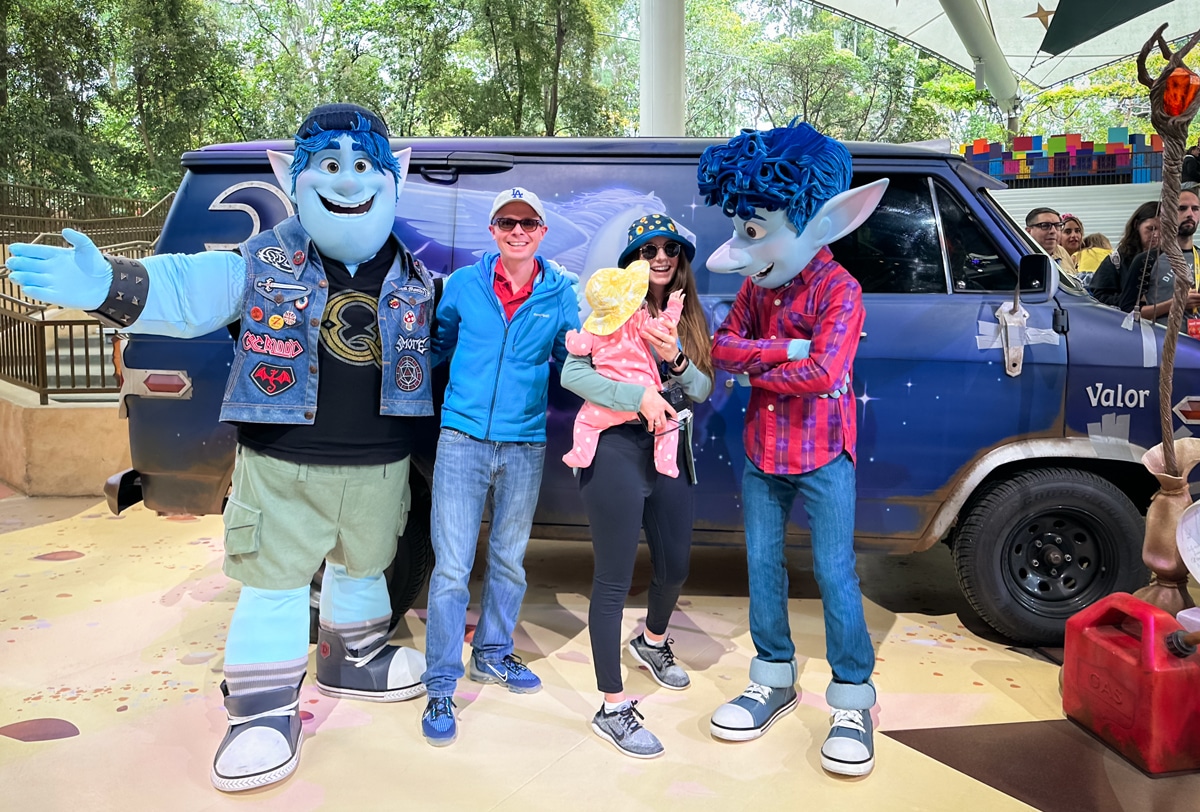
Ultimately, that’s where we stand on this dispute between Disneyland and the unions. It’s disappointing that Disney doesn’t proactively and voluntarily pay above-market wages resulting in a surplus of quality prospective Cast Members, as this should be a dream job. Disneyland is a Southern California institution and one with a storied legacy of superlative service. I shouldn’t be offering higher praise to a burger joint than Disney in that regard, and yet, here we are.
This barely touched upon the soaring cost of living and shelter in and around Southern California, when in fact, our entire commentary could have centered around that. Instead, we only touched upon it in part because that’s its own huge can of worms; it’s also a (sadly) controversial and ideologically contentious issue, and one involving externalities that Disney cannot single-handedly address. And realistically, there is no outcome here that resolves Anaheim’s cost of living or housing crisis.
It’s also not necessary to address any of that in the first place! Disneyland should pay higher wages because attracting and retaining passionate and talented Cast Members should be a top priority, as should treating them in a way that makes them feel valued and wanting to make magical memories that will last a lifetime.
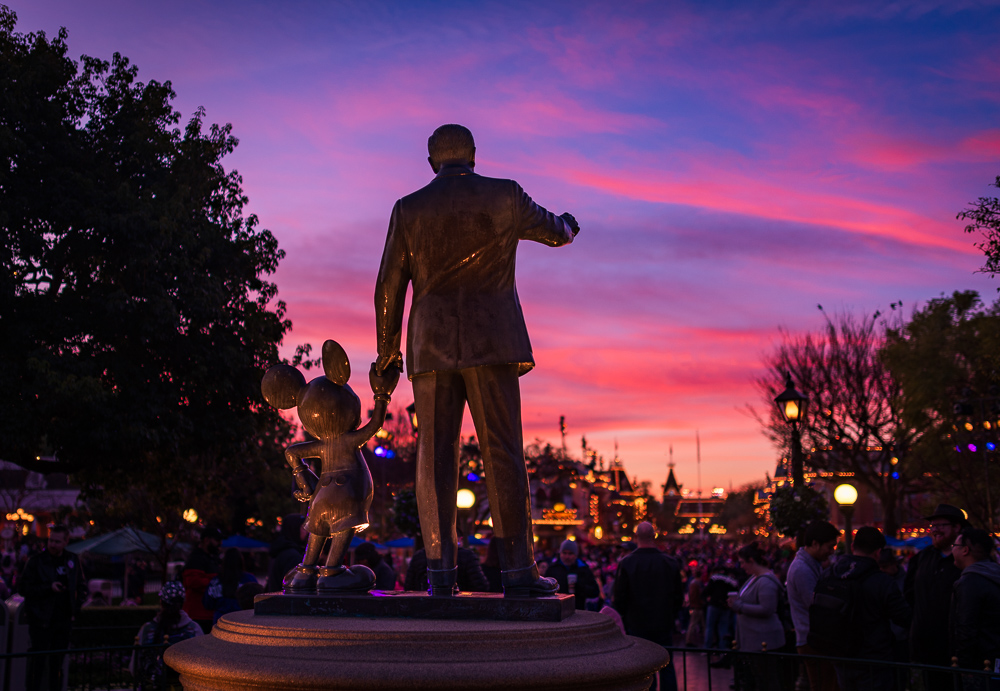
As a guest, you should selfishly want all of that. Your experience is better if Cast Members are treated better by Disneyland–there’s a straight line between how they are treated and how they, in turn, treat guests. Paying Cast Members higher wages is also the right thing to do for myriad reasons, and means the company actually walking their talk. Words mean very little; it’s actions that matter.
Personally, I feel better about paying astronomical prices when I know that a company is doing the right thing and treating its employees well. If you are a Cast Member reading this, thank you for all you’ve done and good luck in your fight–a fight that shouldn’t even need to be fought in the first place. We hope you know that the vast majority of fans actually appreciate you in precisely the way that your company claims to care. After all, you are the magic of Disneyland! As Walt Disney famously said: “You can design and create, and build the most wonderful place in the world. But it takes people to make the dream a reality.”
Planning a Southern California vacation? For park admission deals, read Tips for Saving Money on Disneyland Tickets. Learn about on-site and off-site hotels in our Anaheim Hotel Reviews & Rankings. For where to eat, check out our Disneyland Restaurant Reviews. For unique ideas of things that’ll improve your trip, check out What to Pack for Disney. For comprehensive advice, consult our Disneyland Vacation Planning Guide. Finally, for guides beyond Disney, check out our Southern California Itineraries for day trips to Los Angeles, Laguna Beach, and many other SoCal cities!
Your Thoughts
Any thoughts to add about this dispute between Cast Member unions and Disneyland? Disappointed that Disney doesn’t “walk the talk” when it comes to employee treatment and wages? Would you feel better about paying Disney’s premium prices if it meant the company was treating its employees better? Agree or disagree with any of our commentary? Any questions we can help you answer? Hearing feedback about your experiences is both interesting to us and helpful to other readers, so please share your thoughts below in the comments!


